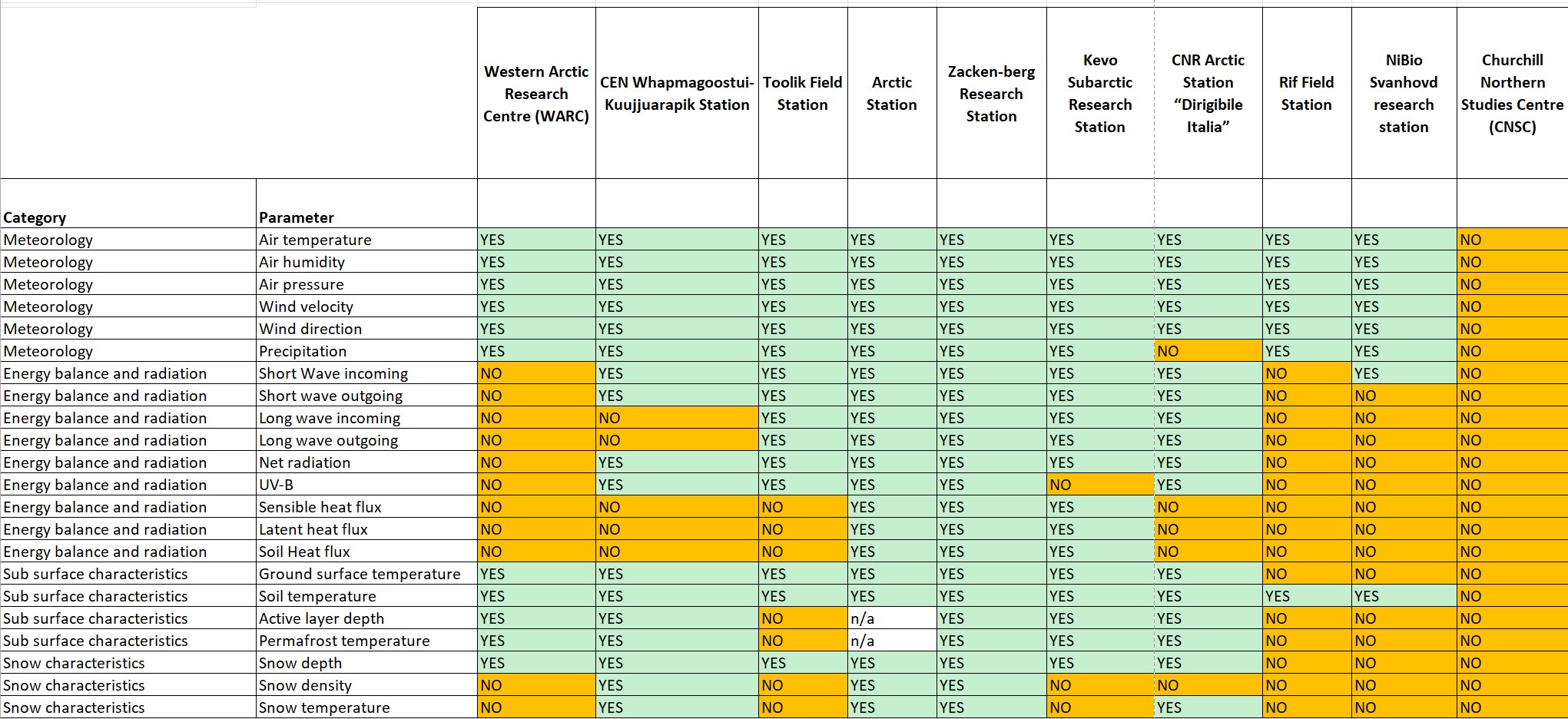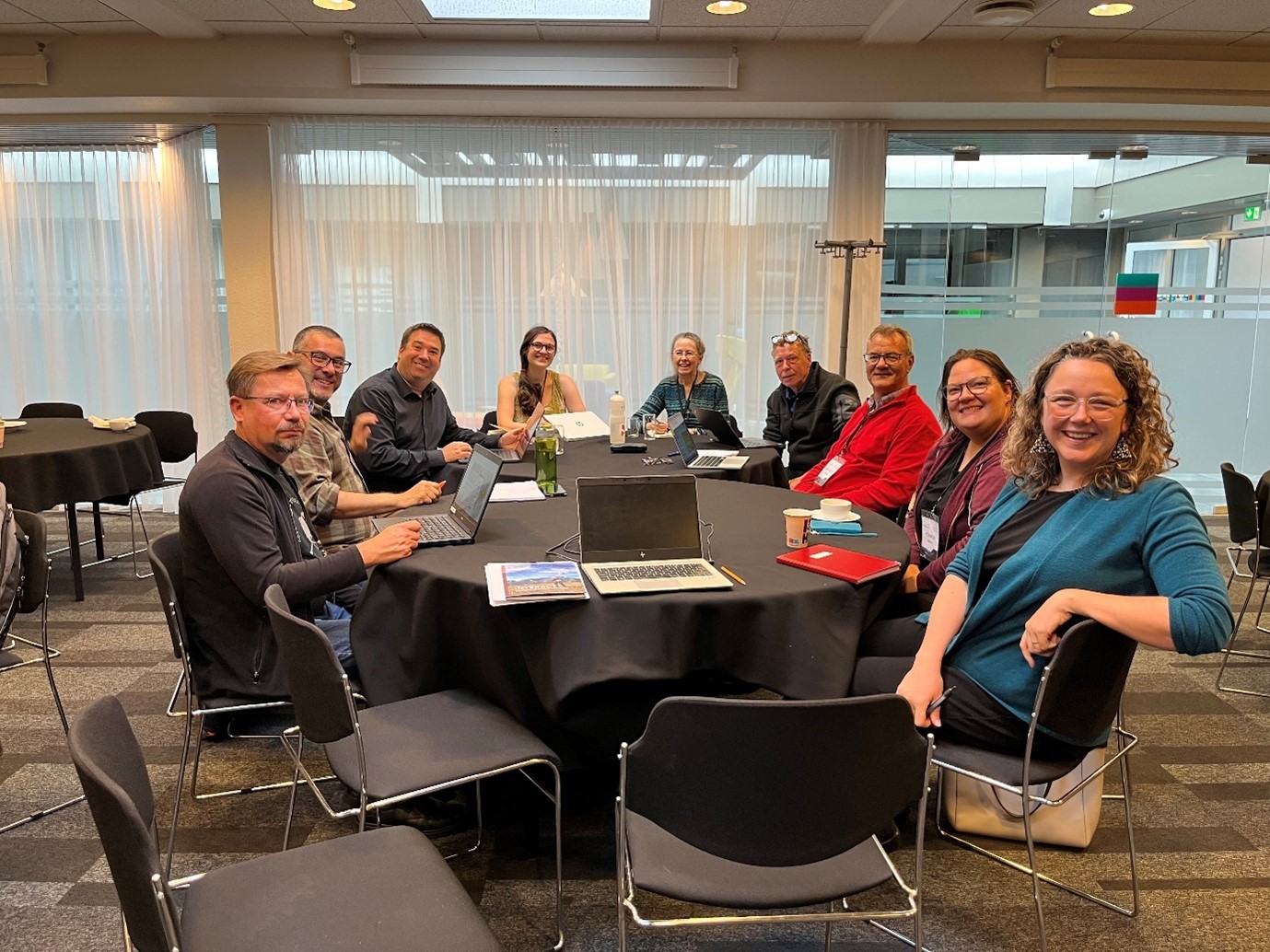Dialogues On Improving Terrestrial Monitoring In The Arctic
by Dr Caroline Coch, Interact Non-Profit Association (INPA) | Published: 28-Nov-22 | Last updated: 27-Nov-22 | Tags : Arctic environment monitoring terrestrial | category: NEWS
One objective of the Arctic PASSION project is to establish
ten terrestrial environmental monitoring sites in the Arctic. This part of the
work is led by the INTERACT Non-Profit Association (INPA), which unites and
represents a network of field stations in the Arctic and northern alpine areas.
INPA invited the following ten INTERACT stations to be part of this effort.
1. Toolik
Field Station – USA
2. Western Arctic Research Centre (WARC)
– Canada
3. CEN Whapmagoostui-Kuujjuarapik
Station – Canada
4. Arctic Station – Greenland
5. Zackenberg Research Station –
Greenland
6. Kevo Subarctic Research Station –
Finland
7. CNR Arctic Station “Dirigibile
Italia” – Svalbard
8. Rif Field Station – Iceland
9. NIBIO Svanhovd research station –
Norway
10. Churchill Northern Studies Centre –
Canada
The first step was to do a thorough review of existing monitoring efforts at the ten stations. We looked for data in the INTERACT data portal, the INTERACT GIS and the stations’ own portals or websites. We compiled an extensive list of all parameters that are being monitored at the ten stations in the climate, cryosphere and ecosystem domains, detailing any metadata information that is available. For an easier comparison, we also compiled a simple spreadsheet detailing whether a parameter was measured (YES) or not (NO). This sheet allowed a quick comparison of where gaps exist when comparing monitoring at the ten stations.

Overview
of priority parameters monitored at the ten participating stations
Choosing which parameters to prioritise
Through a
series of meetings with the station managers of the ten stations, we discussed
the best approach to fill any gaps in monitoring. The discussions also focused
on which parameters to prioritise with regards to the Shared Arctic Variables.
We identified a list of “priority parameters” that would be ideal for all
stations to monitor. It was important that these parameters were 1) measurable
with a sensor requiring minimal human capacity once set up and running, 2)
feasible for the budget allocated in the Arctic PASSION project and 3) relevant
to the terrestrial Shared Arctic Variables wildfires and permafrost
degradation. They encompass meteorological parameters (air temperature, air
humidity, air pressure, wind velocity, wind direction, precipitation), energy
balance and radiation (short wave incoming radiation, short wave outgoing
radiation, long wave incoming radiation, long wave outgoing radiation, net
radiation, UV-B, sensible heat flux, latent heat flux, soil heat flux), sub
surface characteristics (permafrost/ground temperature, ground surface
temperature, soil temperature, active layer thickness), snow characteristics
(snow depth, snow density, snow temperature). These parameters are of
particular interest when studying the Shared Arctic Variables wildfires and
permafrost degradation.
Making decisions with limited resources
A discussion
that came up in the meetings with the station managers, was whether to focus on
fewer, more harmonised parameters versus a wider suite of parameters that are
less harmonised. The group recognised that harmonising the instruments is a
very difficult endeavour, as not all stations run their own weather stations.
In some locations, the weather station is run by the national meteorological
service, which makes integrating new equipment difficult.
Based on all the discussions we had, each station is currently assessing what equipment integrates best into existing monitoring and is feasible to install. INPA continues facilitating discussions and knowledge transfer with all ten station managers to work out the best solution for each of the station. We will place the order for new equipment by the end of this year, so that everything can be set up and installed during the field seasons in 2023.

INPA
hosting an Arctic PASSION working group meeting in Iceland 2022. Photo:
